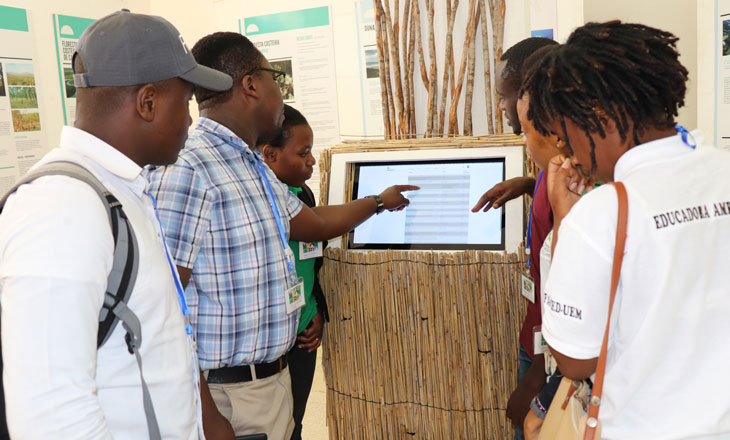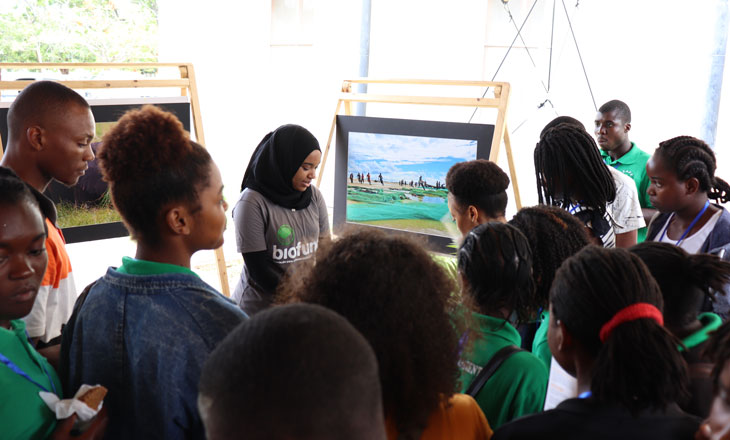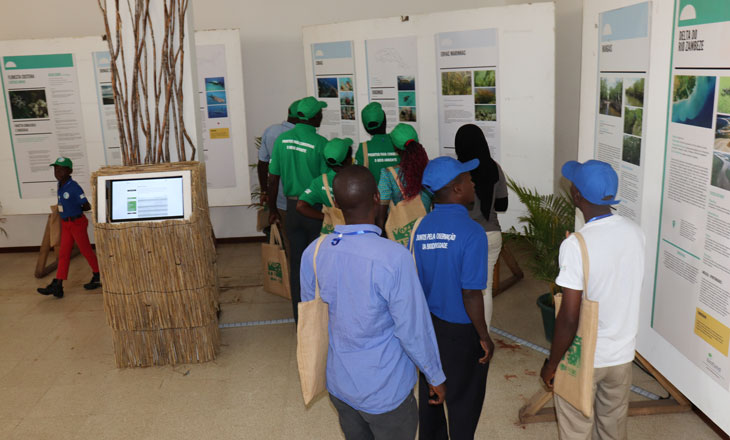Surrounded by communities within and around 7 Conservation Areas, members representing the beneficiary communities were unanimous in stating with enthusiasm during the Vozes da Terra seminar on 25th and 26th of November that the project Mozbio has significantly improved its self-sustenance conditions.
Published at 29/11/2019
Mozbio 1 project reached over 70 000 beneficiaries
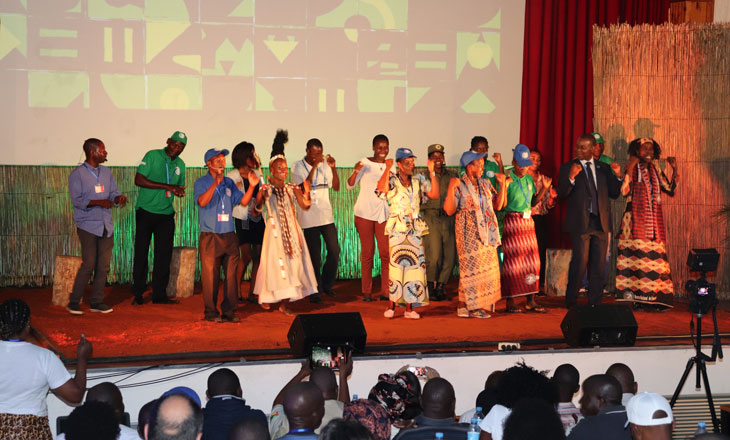
The event was organized by the National Fund for Sustainable Development (FNDS) and the National Administration of Conservation Areas with the support of BIOFUND, aiming to provoke a discussion about community development in Conservation Areas in Mozambique, creating a knowledge and learning base for future interventions.
Edison Rwodzi, IUCN / Micaia Foundation / Eco Micaia consortium technician, one of the service providers of the Mozbio project in the Chimanimani National Reserve, mentioned some of the community projects developed in areas such as ecological agriculture, agroforestry, commercial agriculture and beekeeping focusing on improving production techniques, network expansion, value chain evolution and business plan development. He noted that the projects, in addition to benefiting thousands of members of the communities involved, trained a considerable number of community leaders and enabled women to improve their levels of empowerment. Another highlight was the range of environmental education activities, with emphasis on the involvement of environmental clubs inserted through schools and beyond. In the case of Chimanimani, the examples of benefited communities include: Tsetsera, Mussapa, Phedza, Nhahedzi, Mahate, Mpunga, Zomba, Gotogoto, Macoca and Maronga.
“I am a member of the Commercial Agriculture Association, my specialty is the production of reno potatoes, beans and garlic, thanks to the improvements I had with the support of the Mozbio project, today I was able to increase my income and buy 4 heads of cattle”, Rainha Sevene Macaute – member of Chimanimani Farmers Association. Rabeca Manuel, a member of the Chimanimani Beekeepers Association, said, “Thanks to the Mozbio project, my community already has a fixed buyer for all production and also knows what the best environment for honey production is,” and praised the project Mozbio.
It is recalled that the MozBio 1 project was implemented by the National Fund for Sustainable Development between 2015 and 2019, with funding from the World Bank, and one of its components supported the community development of 7 Conservation Areas, namely: Quirimbas National Park, National Reserve do Gilé, Chimanimani National Reserve, Bazaruto Archipelago National Park, Limpopo National Park, Maputo Special Reserve and Ponta do Ouro Partial Marine Reserve. In these different areas, although with different approaches, it was noticeable that the project ended up generating considerable impacts and with a strong possibility that they would last beyond 2019, according to representatives of the various communities.
The seminar featured a Fair and Exhibition of beneficiary Conservation Areas and project implementation partners. Approximately 200 participants were present, including members of the beneficiary communities, Conservation Areas administration, District Governments, service providers, academics, conservationists, investors.
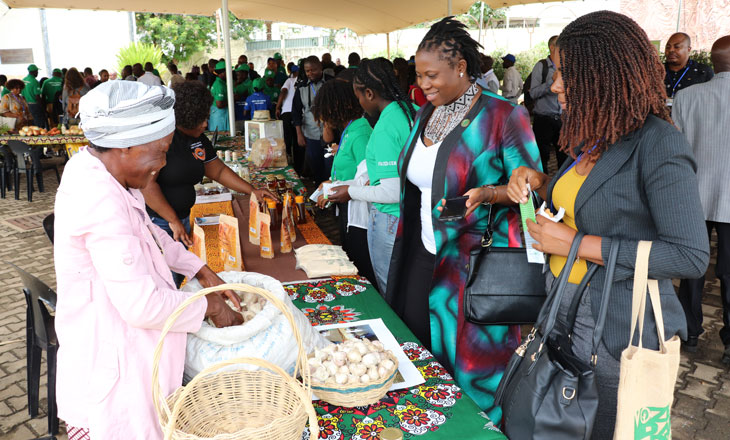
In this partnership scenario, BIOFUND’s participation in this event included an exhibition with about 18 panels illustrating some of the critical habitats and species of the country. The exhibition room was also the venue for demonstrations of the importance of BIOFUND’s virtual library as a repository of information of biodiversity in Mozambique. At the same time, the BIOFUND stand included a mini photographic exhibition that sought to create a reflection on the importance of fishing resources for communities and the dilemma of sustainable fishing and hunting. The opportunity also served to inform dozens of young people present about the Mozambique Conservation Leadership Program and the great interest in attracting them to the conservation sector.
Important to note that BIOFUND was also one of the beneficiary institutions that received institutional support from MozBio 1 project, which has additionally contributed to channel and disburse about US $ 3 million to support operational costs to 11 Conservation Areas, between 2017- 2019.

